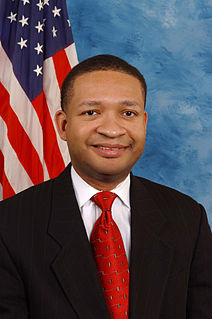A Quote by Donald Trump
I fully understand that the African-American community has suffered from discrimination and that there are many wrongs that must still be made right.
Related Quotes
In the white community, the path to a more perfect union means acknowledging that what ails the African-American community does not just exist in the minds of black people; that the legacy of discrimination - and current incidents of discrimination, while less overt than in the past - are real and must be addressed.
With respect to Barack Obama, let's face it; Barack Obama is an iconic figure in the African-American community. We respect that. We understand that. African-Americans are going to vote for the first black president, especially when he happens to share the liberal politics on economic issues that many in that community hold.
One of the things that made the Black Muslim movement grow was its emphasis upon things African. This was the secret to the growth of the Black Muslim movement. African blood, African origin, African culture, African ties. And you'd be surprised - we discovered that deep within the subconscious of the black man in this country, he is still more African than he is American.
We were segregated throughout the community, and it was pretty brutal, actually. It didn't appear to be, on the surface.People got along and we had great relationships, but there was discrimination that impacted adversely the ability of the African-American community to progress. People did not - were in denial about that fact.
I sit here as the first African-American attorney general, serving the first African-American President of the United States. And that has to show that we have made a great deal of progress. But there's still more we have to travel along this road so we get to the place that is consistent with our founding ideals.
Today, we have come a distance. We have made a lot of progress. That cannot be denied. You cannot dispute the fact that our country is so different from 50 years ago. But we still have problems. There are too many people that have been left out and left behind, and they are African American, they are White, Latino, Asian American, and Native American.

































